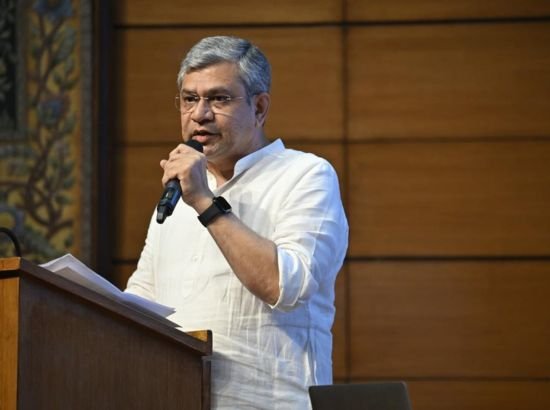
Union Minister Ashwini Vaishnaw announced that caste enumeration will officially be part of the next national Census. He stated that the Union Cabinet, under Prime Minister Narendra Modi’s leadership, had approved this significant decision during a Cabinet Committee of Political Affairs meeting held earlier today.
Mr. Vaishnaw emphasized the government’s intention to strengthen transparency and promote inclusivity. “Our administration has always prioritized social equity,” he said, referencing the previous introduction of 10% reservation for economically weaker sections (EWS).
According to the Minister, this inclusion ensures that caste data is compiled in a structured, constitutional, and transparent manner, unlike what he described as “politically motivated surveys” conducted by some State governments.
“Some States carried out caste surveys without transparency and mainly for political gains. That approach has created confusion and mistrust within society,” Mr. Vaishnaw said.
Mr. Vaishnaw criticized the Congress party and its allies in the INDIA bloc, accusing them of using caste enumeration as a political weapon. He recalled that in 2010, then-Prime Minister Manmohan Singh promised to consider a caste census. However, the Congress-led government only conducted the Socio-Economic and Caste Census (SECC), which lacked full caste data.
“Despite political consensus, the Congress chose a limited survey instead of a full caste census,” he remarked.
Citing Article 246 of the Constitution, Vaishnaw underlined that census operations fall under Entry 69 in the Union List. Therefore, only the central government has the authority to conduct the census, including caste enumeration.
He also highlighted the risks of allowing State-run surveys to dominate this process. “These surveys have led to societal tension. A national, transparent enumeration is essential to maintain harmony and promote informed policymaking,” he said.
According to the Minister, collecting accurate caste data will help design better welfare programs. It will also allow policymakers to address inequality based on reliable statistics.
“By including caste enumeration in the Census, we ensure data accuracy, national unity, and social justice,” he noted.
Apart from the Census update, the Cabinet approved a major infrastructure initiative — a 166.8-kilometre Shillong–Silchar four-lane corridor. The ₹22,864 crore highway will connect Meghalaya and Assam, and improve access to Manipur and Mizoram.
“This project will proceed in hybrid mode and improve regional connectivity in the Northeast,” Vaishnaw added.